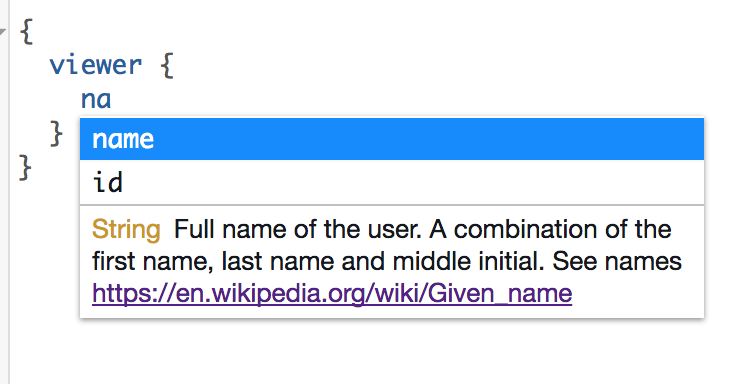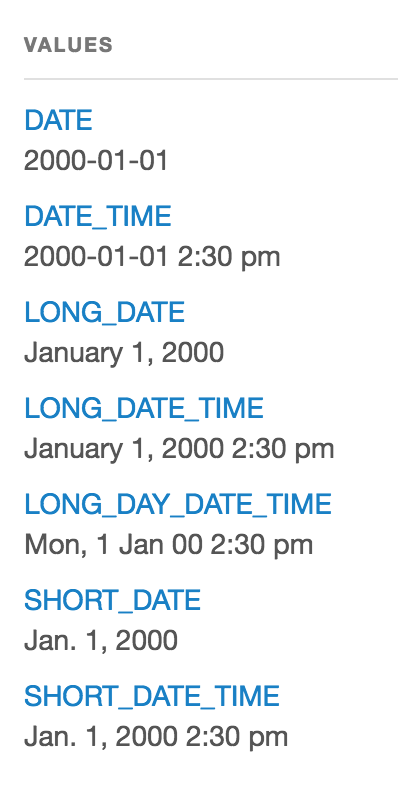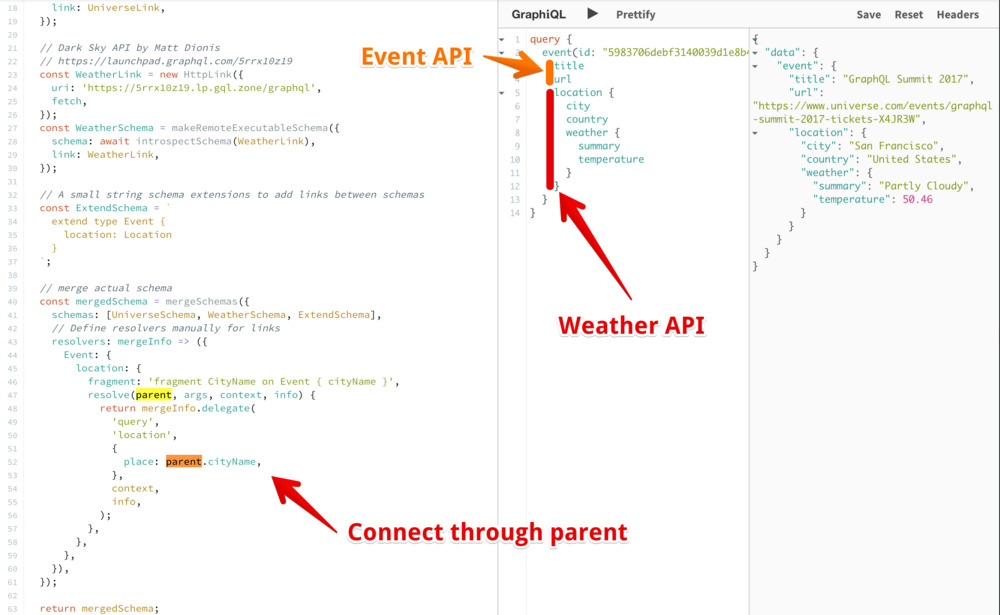Approaching GraphQL
What is GraphQL?
- A query language for APIs
- A runtime for fulfilling those queries with your existing data.
What is GraphQL not?
- An ORM
- Data storage layer
Why use GraphQL?
Build user interface centric API. Clients using GraphQL to construct design elements can efficiently fetch everything required for a component in one request.
Why use GraphQL?
Differences with REST?
Single endpoint
/graphql
vs resource URLs
/posts
/posts/1
/posts/1/comments
/posts/1/comments/1
...
Differences with REST?
Single representation
content-type: application/json
vs multiple representations
content-type: text/html
content-type: application/xhtml+xml
content-type: application/json
...
Differences with REST?
Fewer status codes
200 OK
400 Bad Request
vs many status codes
200 OK
201 Created
202 Accepted
204 No Content
418 I'm a teapot
...
Differences with REST?
Single request method (typically)
POST
vs varied reqeust methods
GET
POST
PUT
PATCH
DELETE
...
GraphQL is a query language
GraphQL defines an API schema to organize available resources. Resources are declared using static types and connected to one another via fields.
GraphQL is a query language
Reads
{
"data": {
"authors": [{
"name": "Dat Boi",
"posts": [
{ "title": "Here he come" }
]
}
}]
}
GraphQL is a query language
Writes
{
"data": {
"createUser": {
"id": "3",
"email": "baz@example.com",
}
}
}
GraphQL is a query language
Expressive type system
- Scalars
- Objects
- Enums
- Inputs
- Interfaces
- Unions
- Modifiers
GraphQL is a query language
Expressive type system
Builtin scalars
ID # A unique identifier
Int # A signed 32‐bit integer.
Float # A signed double-precision floating-point value.
String # A UTF‐8 character sequence.
Boolean # `true` or `false`.
GraphQL is a query language
Expressive type system
Custom scalars. Create any type you want
scalar Time
type Post {
time: Time
}
# Create parse and serialize handlers in your runtime.
TimeType = GraphQL::ScalarType.define do
name "Time"
description "Time since epoch in seconds"
coerce_input ->(value) { Time.at(Float(value)) }
coerce_result ->(value) { value.to_f }
end
# irb(main):001:0> Time.at(Float(1234567890))
# => 2009-02-13 17:31:30 -0600
GraphQL is a query language
Expressive type system
Enum
# Enums are a collection of scalars referencing specific values
enum ExpenseType {
FOOD
TRAVEL
PARKING
}
type Query {
expenses(type: ExpenseType): [Expense]
}
GraphQL is a query language
Expressive type system
%p Objects
enum CompanyType { CNN }
type Author {
name: String
posts: [Post]
}
type Post {
title: String
}
type Query {
bloggers(type: CompanyType): [Author]
}
GraphQL is a query language
Expressive type system
Inputs
Define an explicit shape of all input objects for mutations. Save the work of manually parsing and validating the shape and size of user input. Let GraphQL do the grunt work!
GraphQL is a query language
Expressive type system
Inputs
mutation createExpense($input: CreateExpenseInput!) {
createExpense(input: $input) {
id
}
}
input CreateExpenseInput {
type: ExpenseType!
amount: Float!
description: String
}
GraphQL is a query language
Expressive type system
Modifiers
When reading data the GraphQL runtime responds with error messages communicating the state of the fulfilled query. Any non conformity to the schema is reported as an error.
GraphQL is a query language
Expressive type system
Modifiers
! # Non null
[] # List
How it works
name: String # nullable name
name: String! # non nullable name
names: [String] # nullable list of nullable names
names: [String]! # non nullable list of nullable names
names: [String!]! # non nullable list of non nullable names
GraphQL is a query language
Expressive type system
Modifiers on types
{
"errors": [
{ "message": "Cannot return null for non-nullable field User.name.", }
],
"data": {
"user": null
}
}
GraphQL is a query language
Expressive type system
Modifiers on arguments
{
"errors": [
{
"message": "Field \"viewer\" argument \"id\" of type \"ID!\" is required but not provided.",
}
]
}
GraphQL is a query language
Expressive type system
Modifiers on inputs 😍
{
"errors": [
{
"message": "Field CreateUserInput.email of required type String! was not provided.",
}
]
}
GraphQL is a query language
Expressive type system
Unions
A set of possible types with no guarantee of consistency between fields.
GraphQL is a query language
Expressive type system
Unions
type SocialMediaPost {
content: String
}
type BlogPost {
title: String
content: String
}
union PostUnion = BlogPost | SocialMediaPost
type Query {
posts: [PostUnion]
}
GraphQL is a query language
Expressive type system
Unions
GraphQL is a query language
Expressive type system
Interface
An abstract type declaring common fields and arguments. Any object implementing an interface is guarantees certain fields exist.
GraphQL is a query language
Expressive type system
Interface
interface MutationResult {
notice: String
success: Boolean!
}
type CreateExpensePayload implements MutationResult {
result: Expense
success: Boolean!
}
mutation {
createExpense(input: CreateExpenseInput!): CreateExpensePayload
}
GraphQL is a query language
Expressive type system
Interface
GraphQL is a runtime
GraphQL is a runtime layer between the client and your business logic. It is responsible for analyzing, validating, and resolving incoming requests. GraphQL implementations currently exist for: C# / .NET, Clojure, Elixir, Erlang, Go, Groovy, Java, JavaScript, PHP, Python, Scala, Ruby
GraphQL is a runtime
Analysis
Queries can become complex and tax your system of resources 😫. The runtime performs complexity and depth analysis on all incoming requests, and if you wish, it can only allow queries within a specific threshold.
MySchema = GraphQL::Schema.define do
max_depth 10 # Prevent deeply nested resources
max_complexity 100 # Reject complex queries
end
GraphQL is a runtime
Validation
query {
user {
juicyBitcoins
}
}
{
"errors": [
{
"message": "Cannot query field \"juicyBitcoins\" on type \"User\".",
"locations": [
{
"line": 3,
"column": 5
}
]
}
]
}
GraphQL is a runtime
Resolution
The runtime resolves fields. By default, fields are resolved from the underlying struct and the values are returned for the field.
GraphQL is a runtime
Resolution
Resolvers are anonymous functions called with three arguments
query {
currentUser {
email
}
}
const resolvers = {
Query: {
currentUser: (object, args, context) => context.currentUser
}
}
// object # In memory object (think ORM)
// args # GQL query arguments
// context # Global state
GraphQL is a runtime
Resolution
Define resolvers inline, if you want.
const resolvers = {
User: {
emailAddressLength: object => object.email.length,
randomFloat: () => Math.random()
}
}
Benefits
There are many. Here are a few.
Benefits
Explorable APIs
Add descriptions. Deprecate fields. Communicate.

Benefits
Explorable APIs
Add descriptions. Deprecate fields. Communicate.

Benefits
Explorable APIs
Add descriptions. Deprecate fields. Communicate.

Benefits
Explorable APIs
Add descriptions. Deprecate fields. Communicate.

Benefits
Explorable APIs
Add descriptions. Deprecate fields. Communicate. Some good examples:
Benefits
Static Types 🏋️
Push input paramater validations out into the GraphQL runtime and build user interfaces to consume and bubble up responses.
Benefits
Declarative User Interface
Design components that speak GraphQL and only request data required to render the component
Benefits
Declarative User Interface
const query = gql`
query {
greeting
}
`
const Greeter = props => (
<div>
<h1> {props.data.greeting} </h1>
</div>
)
export default graphql(query)(Greeter);
See Apollo GraphQL for more information
Benefits
Composable APIs
Present N distinct GraphQL APIs into a single schema with a concept known as schema stitching.
See Schema stitching for more information. Example
Benefits
Composable APIs

Benefits
Performance Insight
The GraphQL runtime provides executions hooks into each of your resolvers. It is possible to know the time it takes to resolve each field.
Benefits
Performance Insight
